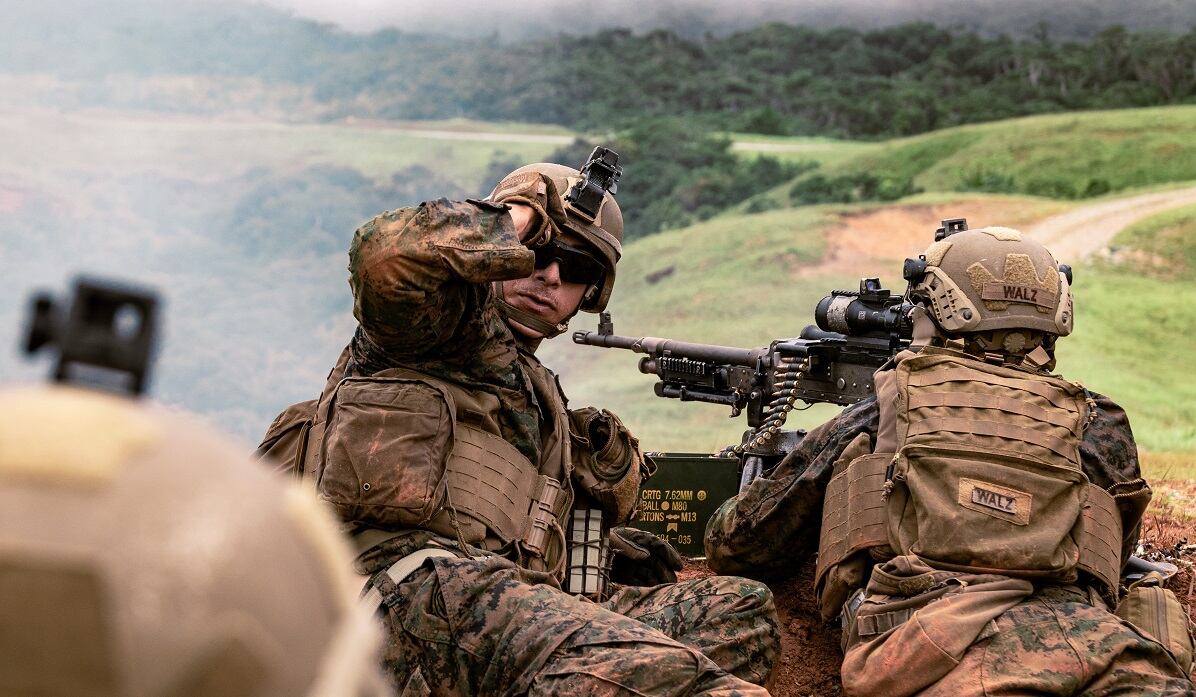The United States Marine Corps is facing irreparable damage from two well intended but ill-conceived concept documents.
One already has devastated its offensive spirit and capabilities. The other is destined to erode the ethos and undermine the special identity of its Marines.
Force Design 2030 and Talent Management 2030 will change how Marines fight and how they see themselves. They will dim the pride that once characterized the Marine Corps in the eyes of the American people. They will erode confidence inside and outside the Corps that United States Marines can locate, close with and destroy the enemy today and in the future.
Marines always have seen themselves as different: America’s shock troops, with one foot on land and the other foot at sea. Marines pride themselves on being the most ready when the nation is least ready; the country’s premier 9-1-1 force, ready to deploy anywhere, anytime, fight any foe and win.
RELATED

The American people always have seen their Marines as something special – young and energetic, characterized by selfless service, raw courage and dependability.
A refrain often heard on graduation day at the recruit depots is, “I sent you a boy (or girl), you sent me back a man (or woman).”
The national security establishment has seen the nation’s Corps of Marines as ready and eager to fight; just over the horizon but always close enough to show American resolve or respond quickly to any situation, anywhere before it gets out of hand.
During a developing crisis or contingency, the question frequently asked by decision-makers is, “Where are the aircraft carriers and where are the Marines?”
They know Marines can be depended upon to fight and win if called upon.
This trilogy of converging perspectives and expectations has shaped the ethos of America’s Marines, from Tripoli to Afghanistan and on every battlefield, in every skirmish, and during every humanitarian assistance and disaster relief response in between.
Generation after generation of Americans have grown accustomed to the familiar headline, “The Marines have landed and the situation is well in hand.”
But ethos is fragile.
Unlike force structure and equipment, which can be rebuilt if lost, ethos, once extinguished, is gone forever.
Ethos is a state of mind that allows Marines to boast with pride, “The difficult we do right away, the impossible takes a little longer.”
President Ronald Reagan honored all Marines and the special place they hold in America’s conscience when he said: “Some people spend an entire lifetime wondering if they made a difference in the world. But, the Marines don’t have that problem.”
Unfortunately, future Marines will have that problem unless the course presently charted is reversed.
The Marine Corps is being significantly weakened by unwise cuts in its force structure and equipment and reductions in Navy amphibious and maritime prepositioning ships; divestments that undermine its congressionally mandated responsibilities as a combined arms force-in-readiness. And, by personnel management approaches that erode esprit, teamwork and identity.
Consider the following:
• The elimination of all armor, scout sniper platoons in infantry battalions, and bridging coupled with drastic cuts in infantry, cannon artillery, assault amphibious vehicles, aviation, military police, assault beaching and combat service support have crippled Marine Corps capabilities to respond to global crises and contingences across the spectrum of conflict.
These capabilities were sacrificed on the “divest to invest” altar for future, experimental weapons that will only duplicate what other services already have in sufficient numbers.
The Marine air-ground task force, historically the first to arrive on scene with the combat power and sustainment to persist and win “in every clime and place,” is being emasculated to self-fund an essentially one-dimensional coastal defense force.
• The gutting of the maritime prepositioning force and the dramatic reductions in amphibious ships and their readiness to deploy have significantly and adversely impacted Marine Corps forward presence and crisis response.
• The focus away from infantry, youth and shared experiences are destroying the values that make Marines different.
“Every Marine a rifleman” is at best an empty slogan, as infantry skills are devalued to make way for computer and other technical skills.
An older force is seen as preferable to a younger, more adventurous force.
To be blunt, Unites States Marines increasingly are irrelevant to the National Command Authority and to the combatant commanders. It seems the Army’s 18th Airborne Corps has replaced Marines as the nation’s premier 9-1-1 force.
The American people fail to understand why Marines train, look and talk more like the other services. Some Marines may no longer see themselves as a breed apart.
The damage is not irreversible, providing future commandants begin the process to build back essential warfighting capabilities and restore an ethos that values the infantry, an offensive spirit, and combined arms.
Marine Corps Maj. Gen. James Livingston (retired) is a career infantry officer. He was awarded the Congressional Medal of Honor while serving as the commanding officer, Company E, 2nd Battalion, 4th Marines during the Battle of Dai Do in Vietnam.
Marine Corps Col. Jay Vargas (retired) is a career infantry officer. He was awarded the Congressional Medal of Honor while serving as the commanding officer, Company G, 2nd Battalion, 4th Marines during the Battle of Dai Do in Vietnam.
Have an opinion?
This article is an op-ed and, as such, the opinions expressed are those of the author. If you would like to respond or have an editorial of your own you would like to submit, please email Marine Corps Times Editor Andrea Scott.
Want more perspectives like this sent straight to you? Subscribe to get our Commentary & Opinion newsletter once a week.





